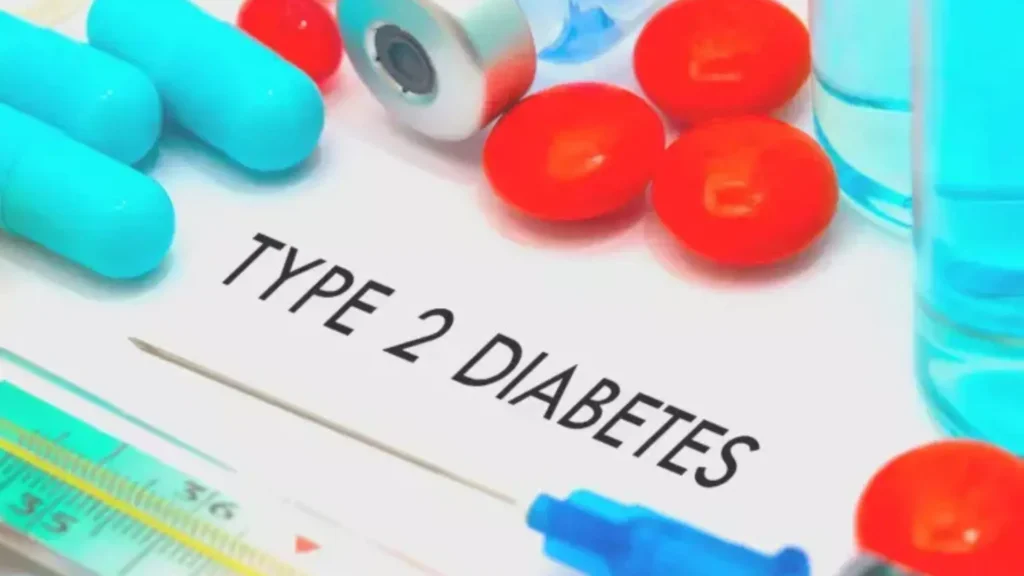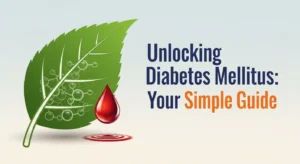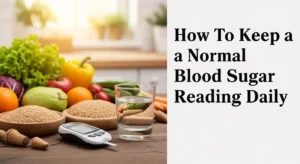Over 37 million Americans have diabetes, and 7 million don't know they have it. This is a wake-up call for those affected. It shows the importance of making lifestyle changes to manage blood sugar and fight insulin resistance. Changing your diet, exercising more, and losing weight can help a lot.

In this article, we'll look at how to naturally reverse Type 2 Diabetes. We aim to guide you towards a healthier life.
My Personal Battle With Type 2 Diabetes
My journey with Type 2 Diabetes started with a shocking diagnosis. It was a moment I never expected. The first diabetes symptoms made me go to the doctor.
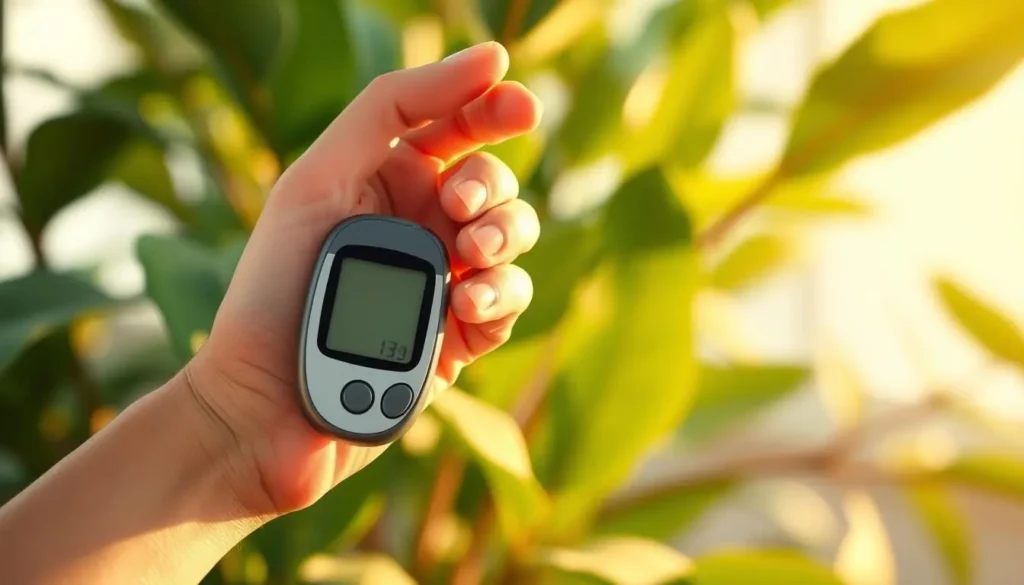
My Shocking Diagnosis Story
The diagnosis was a wake-up call. It made me learn about type 2 diabetes and its effects. I wanted to know why I got it and what treatments were out there.
Initial Symptoms I Couldn't Ignore
The first signs of diabetes symptoms were increased thirst and fatigue. At first, they were small. But they grew too big to ignore.
Why I Chose The Natural Reversal Path
After learning about my diagnosis, I chose a natural path. Jason Fung's book, “The Diabetes Code,” showed me how to reverse Type 2 Diabetes. It talked about changing my diet and fasting.
- Making informed dietary choices to manage blood sugar levels
- Incorporating prediabetes-friendly foods into my meal plan
- Adopting intermittent fasting as a strategy to improve insulin sensitivity
This journey has taught me more than just managing my diabetes. It's about living a healthier life.
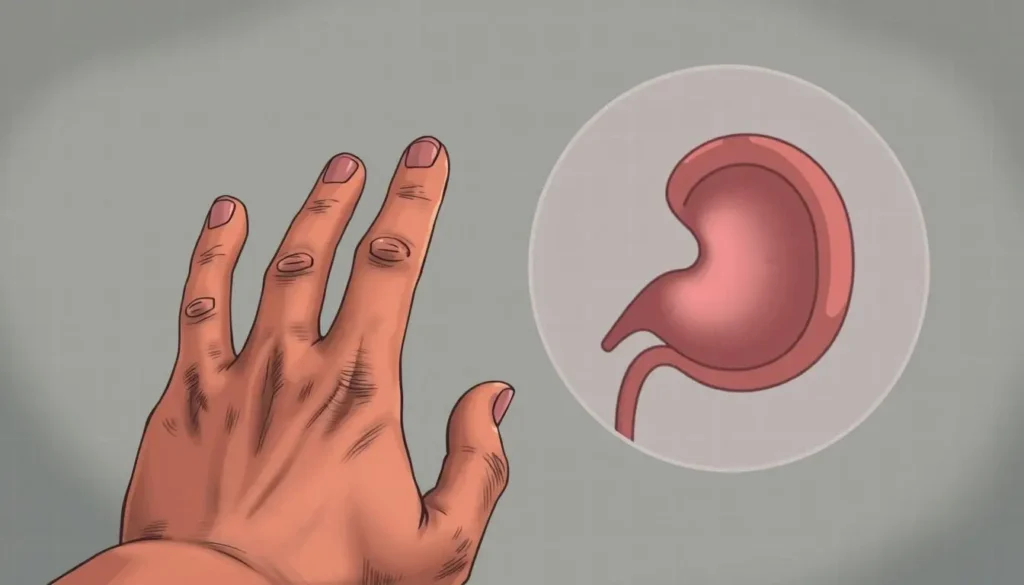
Understanding Type 2 Diabetes And Why It Can Be Reversed
To reverse Type 2 Diabetes, we must first understand its causes. Type 2 Diabetes happens when our bodies don't use insulin well. This is called insulin resistance.
The Root Causes Of Insulin Resistance
Insulin resistance comes from genes, lifestyle, and environment. Being inactive, higher weight, and eating too much sugar and unhealthy fats are big factors.
Warning Signs My Body Was Sending
Before I was diagnosed, my body gave me signs. I was thirsty and urinated a lot, felt tired, and saw blurry vision. Spotting these signs early can help a lot.
The Science Behind Natural Reversal
To naturally reverse Type 2 Diabetes, we need to tackle insulin resistance's causes. This means eating right, moving more, and managing stress.
Metabolic Recovery Process
Improving how our body handles blood sugar is key. This happens with the right diet and exercise.
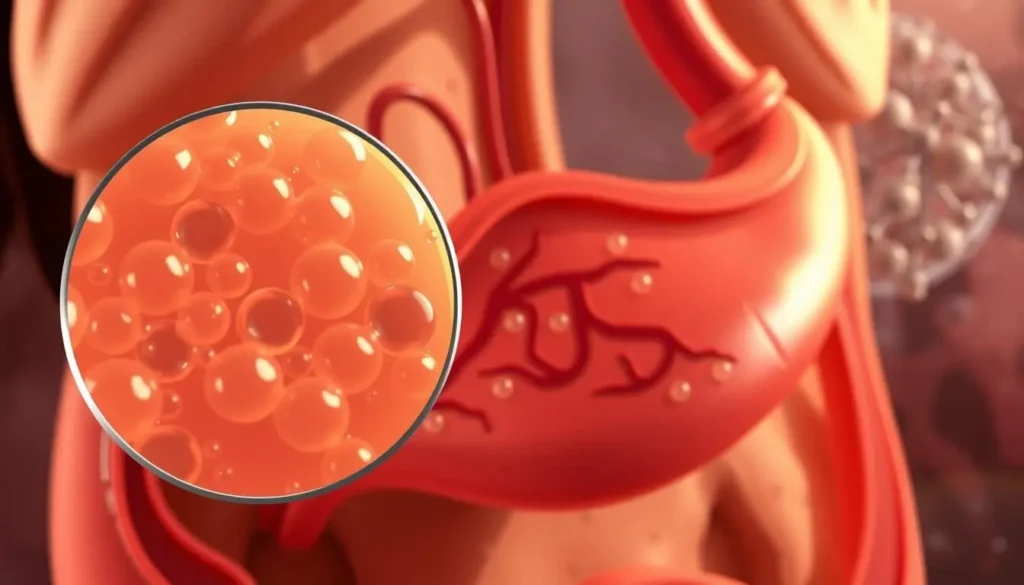
Cellular Insulin Sensitivity
Boosting how our cells use insulin is vital. Making lifestyle changes helps our cells work better with insulin.
| Lifestyle Change | Impact on Type 2 Diabetes |
|---|---|
| Dietary Changes | Improves blood sugar control |
| Increased Physical Activity | Enhances insulin sensitivity |
| Stress Management | Reduces cortisol levels, aiding in blood sugar regulation |
My Diet Revolution: Eating To Defeat Type 2 Diabetes
I started to change my diet to fight Type 2 Diabetes. I learned how important food is in managing and maybe even reversing it.
Blood Sugar-Balancing Foods I Prioritized
I chose foods that keep blood sugar stable. These were:
- Leafy greens like spinach and kale
- Fatty fish rich in omega-3 fatty acids, such as salmon
- Nuts and seeds, like almonds and chia seeds
- Whole grains, including quinoa and brown rice
Sugar And Carbs: What I Eliminated And Why
I cut down on sugars and refined carbs, as Jason Fung suggested. I stopped eating:
- Sugary drinks and desserts
- Refined grains like white bread and pasta
- Processed snacks
My Strategic Meal Planning Approach
Planning meals was key in my diet change. I followed a daily meal plan for balanced nutrition.
My Daily Meal Template
My day included:
- Breakfast: Overnight oats with nuts and berries
- Lunch: Grilled chicken with quinoa and steamed vegetables
- Dinner: Baked salmon with sweet potato and green beans
Smart Portion Control Techniques
I controlled portions by:
- Using smaller plates
- Measuring my food
- Eating slowly and stopping when satisfied, not full
Natural Supplements That Supported My Recovery
Along with diet changes, natural supplements helped me recover. These were:
- Berberine, known for its blood sugar-lowering effects
- Omega-3 fatty acids for inflammation reduction
- Probiotics to support gut health
Exercise Protocols That Restored My Insulin Sensitivity
I found out that regular exercise is key to getting my insulin sensitivity back. As I worked to reverse Type 2 diabetes, exercise became a must-have tool. The guidelines say I should do at least 150 minutes of moderate exercise or 75 minutes of vigorous exercise each week.
Starting From Zero: My Beginner's Routine
I started with short walks, then made them longer and more intense. This way, I built a habit without feeling too much pressure.
Cardio Exercises That Lowered My Blood Sugar
Cycling and swimming were great for lowering my blood sugar. These activities not only helped my glucose levels but also boosted my heart health.
How Strength Training Transformed My Metabolism
Adding strength training to my routine changed my metabolism. It helped my body better control glucose levels by building muscle.
My Weekly Movement Plan (With Modifications)
I mixed cardio and strength training in my weekly plan. I made changes when I was tired, so I could keep going without pushing too hard.
Safety Precautions I Always Followed
I checked my blood sugar before and after working out to avoid low blood sugar. Drinking plenty of water and listening to my body helped prevent nerve damage.
Critical Lifestyle Adjustments Beyond Food And Fitness
Changing my lifestyle was key to beating Type 2 Diabetes. I learned to manage stress, sleep better, and handle intermittent fasting carefully.
Stress Management Techniques That Worked For Me
Stress can really mess with your blood sugar. I found a few stress-busters that worked great.
- Meditation and mindfulness practices
- Yoga and tai chi exercises
- Deep breathing exercises
My Sleep Optimization Protocol
Getting better sleep was a must. I stuck to a regular sleep schedule, had a calming bedtime routine, and made my bedroom sleep-friendly.
Intermittent Fasting: My Careful Approach
I started with short fasting times and slowly got longer. This helped my body adjust.
Monitoring For Hypoglycemia
When fasting, I watched my blood sugar closely to prevent low levels. I adjusted my fasting times if needed.
Building My Health Support Network
Having people who supported me was vital. Healthcare pros, family, and friends gave me the push and advice I needed.
Monitoring Progress And Adapting My Strategy
During my journey, I found out how important it is to watch my blood glucose levels. Keeping an eye on these levels helps me manage my diabetes well. It also helps me make smart choices about my treatment.
Blood Glucose Tracking Tools I Relied On
I used a continuous glucose monitoring system (CGMS) and a glucometer to track my blood glucose. These tools gave me real-time data. This data showed me how food and activities affect my blood sugar.
| Tool | Purpose | Benefits |
|---|---|---|
| Continuous Glucose Monitoring System (CGMS) | Real-time glucose monitoring | Identifies trends and patterns in blood glucose levels |
| Glucometer | Periodic blood glucose checks | Provides immediate feedback on blood glucose levels |
Beyond A1C: Other Health Markers I Watched
I also kept an eye on other health markers like lipid profiles, blood pressure, and kidney function. These markers gave me a full picture of my health. They showed me how well my diabetes treatment was working.
My Collaborative Approach With Healthcare Providers
I worked closely with my healthcare team to adjust my treatment plan. We used data from my monitoring tools to make these changes. This teamwork made sure my diabetes management was always on track.
How I Pushed Through Reversal Plateaus
At times, my progress seemed to stall, and I had to rethink my approach. By looking at my blood sugar data and tweaking my diet and exercise, I broke through these barriers.
When To Adjust Vs. When To Persist
It was key to know when to change my strategy or stick with it. Talking to my healthcare providers helped me make the right calls.
Conclusion: Maintaining My Victory Over Diabetes
Reversing Type 2 Diabetes naturally has changed my life. I've started eating better, exercising regularly, and managing stress. These changes help me keep my diabetes under control. It's important to keep up with these habits for the long run. This way, I can avoid high blood sugar problems. It's all about making healthy choices every day.
Keeping an eye on my progress is key. I check my blood sugar often and watch for signs of low blood sugar. This helps me adjust my plan to stay healthy. My goal is to help others find natural ways to beat Type 2 Diabetes. With the right approach and dedication, a healthier life is possible. I'm committed to keeping my healthy habits going, so I can manage my diabetes well.


